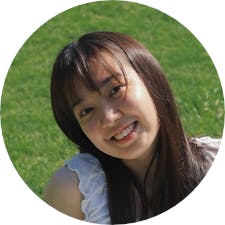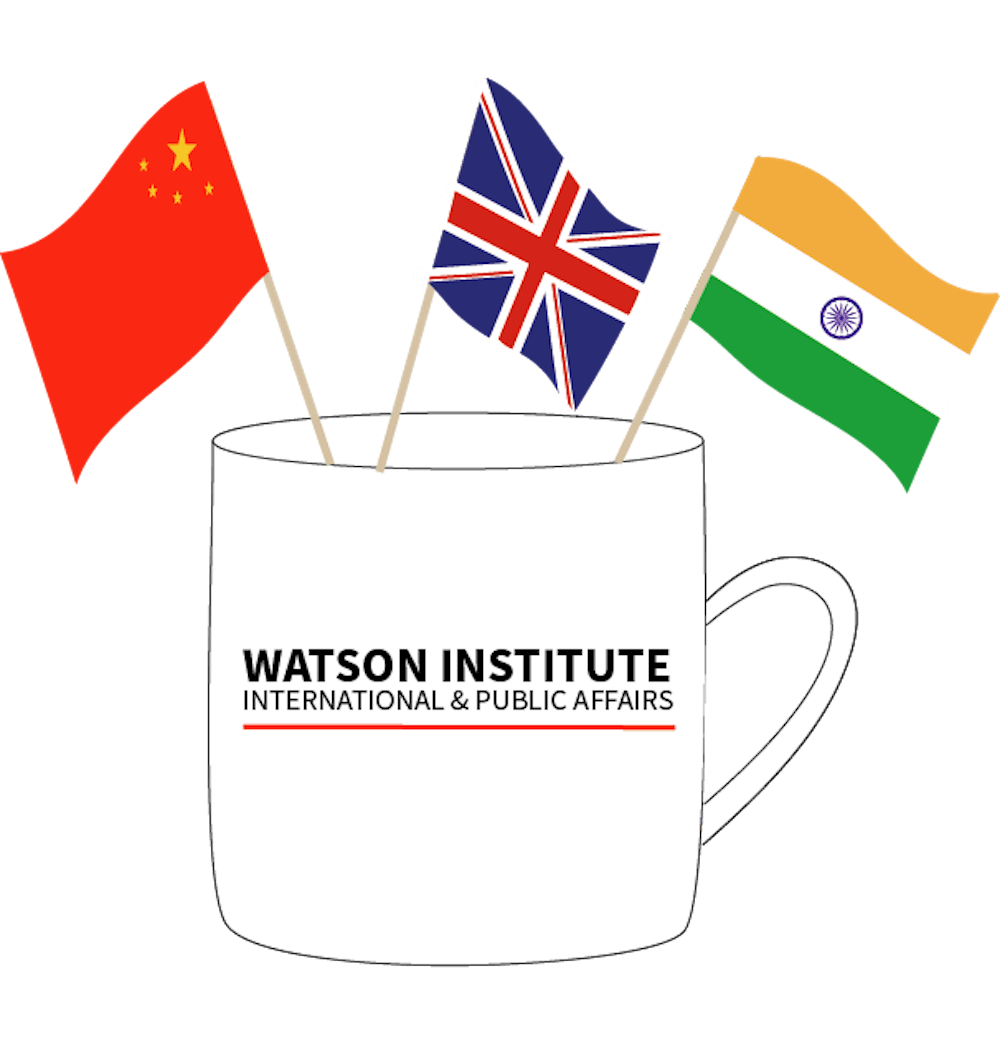After receiving an internship offer, the work process for international students studying the humanities has only just begun. To get approved for Curricular Practical Training — work authorization for internationals on an F-1 student visa — Brown students have to plan an independent study and obtain approval from a faculty sponsor, concentration advisor and a Dean of the College, according to the Office of International Student and Scholar Services’ website.
F-1 student visa holders have to obtain Curricular Practical Training authorization prior to working an off-campus internship or other employment during their time of study, according to the OISSS website.
After completing two full semesters at the University, students can begin the process of obtaining Optional Practical Training authorization. OPT can take place during or after graduation and is limited to a total of 12 months, according to the OISSS website. After completing a “program of study” or OPT, international students are eligible to seek an H-1B visa that allows them to work beyond the time designated by OPT, according to the Department of Homeland Security website.
Currently, the yearly cap for H-1B visas is 65,000, according to the U.S. Citizenship and Immigration Services website. But H-1B visas for “faculty positions, high-level administrators (and) researchers” are not subject to this cap, said Kelsey Dennis, assistant director of International Student Services.
While the official time for OPT is limited to 12 months, students in STEM fields — as designated by the U.S. Department of Homeland Security, which includes degrees in fields such as economics and psychology —- can apply for a two-year extension of OPT, according to the OISSS website. Students in the humanities, however, have just one year of OPT, limiting their opportunities to get an H1-B visa.
According to Dennis, OPT differs from CPT in that it is a “more broad work authorization.”
OPT “can be done before graduation … but it can also be used after graduation, whereas CPT cannot,” she said.
She added that for OPT, “you have to apply to the federal government. It’s an EAD card application, or Employment Authorization Document … the school has to recommend them and say, ‘yes, this student is in good standing and is eligible.’”
Apart from the difficulties of navigating work authorization, some international humanities concentrators also face challenges studying reading- and writing-intensive subjects in a second language. The Herald talked to international students and University administrators about their experiences choosing courses, applying for work visas and preparing for their futures.
What goes behind a job offer: CPT, OPT, H-1B
The process behind obtaining work visas for international students can be lengthy.
Yohan Mutta ’23, an international and public affairs concentrator from Kenya, started seeking approval for CPT as soon as he received his summer internship offer in February. He didn’t finish the process until late April.
“There's a lot of layers of bureaucracy, a lot of signatures and approvals that I had to get,” he said. “A lot of the processes are outside my control,” he said.
While students in the Departments of Applied Mathematics, Computer Science, Economics and Engineering qualify for the professional track — where they only need to obtain approval for the internship to count toward track requirement — non-professional track students like Mutta need to take an independent study course in the field of their internship and concentration, according to the OISSS website.
Because the two-year extension of OPT only applies to students in STEM fields as designated by DHS, humanities students like Mutta only receive one year of OPT.
For Indira Abzalova ’25, an international and public affairs concentrator from Russia, the one-year OPT limit contributes to feelings of insecurity about her future.
“Especially now (that) I don't know if and when I will be able to (go) back to my country, I would feel much more secure about my future if I knew that I (had) three years” of OPT, she said.
According to Dennis, OPT is helpful because graduates can work on it while filing for an H-1B visa and continue to work when the H-1B visa starts. If someone doesn’t receive the visa when their OPT ends, they have to seek alternatives, such as securing other types of work authorization, transferring abroad until they receive the visa or leaving work for graduate school, she said.
Dennis added that, to apply for an H-1B visa, one needs an employer who’s willing to sponsor them. The employer “may need to pay for an immigration attorney’s help if they are not familiar with the process …. (and) the filing fees, in particular, have to be paid by the employer,” she said.
In December 2021, fees increased for H-1B petitioners — who now need to pay a $4,000 additional fee if they meet certain criterias, like having 50 or more employees in the U.S. or filing with a postmark date of Dec 18th, 2015 or later, according to the U.S. Citizenship and Immigration Services website.
Further issues for humanities students may result from the nature of the H-1B visa, according to Dennis. “H-1B is also a specialty occupation visa,” she said. “Entry level positions or non-specialist positions may not qualify for H-1B sponsorship.”
According to Dennis, if a job posting says anyone with one of multiple degrees can apply, it can be difficult to argue that it is a specialist position — an issue that is more common in humanities fields, where various subjects share sets of skills.
“Whereas, if … it's a software engineer position, you need to have a computer science (degree),” she said.
But for students in STEM fields, three years of OPT still do not guarantee anything.
Johnson Zhou ’23 has his first draw for the H1-B — for his post-graduation job — in April, and he is preparing his documents right now, he said in an interview with The Herald conducted in Mandarin and translated to English.
“Having three years of OPT and securing a real job in the U.S. are two totally different things — even with those three years it’s still really difficult to receive (the) H1-B — (and) at the end of the day, you’ll need a sponsor” for an H1-B visa, he added.
Passion or reality: double-concentrate or not?
For some students, double-concentrating offers an opportunity to maximize work opportunities while still being able to explore academic interests in the humanities.
According to Dennis, double-concentrating broadens work opportunities for students on F-1 visas since they can only take off-campus employment offers that relate directly to their concentration.
Zhou double-concentrated in applied mathematics and history, “but of course there are some practical factors in the decision, as an international student,” he said.
Zhou, who plans to work in economic consulting, finds himself having to “read many documents and make arguments with them, while using statistical analysis” skills acquired in applied mathematics, he said.
“It’s similar to history in terms of its qualitative aspects,” Zhou said.
On the other hand, Mutta had limited interest in STEM concentrations and chose not to double-concentrate in economics — which qualifies for three years of OPT.
“I'm here for four years, (I want) to enjoy it,” he said. “And I also know there are a lot of other people who … have one year of OPT, and they're fine,” he added.
Though she considered concentrating in STEM to receive extra years of OPT, Abzalova said her lack of interest in STEM fields superseded her desire to increase her odds of securing an H1-B visa to stay in the U.S.
“I understand that that might not be the situation for everyone,” she added. “For some people, the pressure (to stay in the US) might be more.”
Reading and writing across languages
Though she is concentrating in IAPA, Abzalova often shops English classes — yet she never ends up taking them, she said.
“Sometimes I feel like my vocabulary (and) ability to express what I think are strained,”Abzalova said. “I feel like I could explain it much better, much more concisely and more persuasively if I was writing in my first language.”
According to Anne Kerkian, senior associate director for Writing and English Language Support, reading and writing across languages can often be difficult for multilingual students.
“It’s not doing translation work — it's really sort of thinking and composing and having that voice in one language” and applying it to another, she said.
Zhou said that in his opinion, a paper’s arguments, structure and logic matter above all else.
“Having to write … in a second language doesn’t necessarily result in a disadvantage … what matters (is how) … well you present your arguments in clear phrasing and logic,” he said.
Kerkian said that the way students think of and use English helps with identity building.
“What makes communicating so interesting and exciting is we all have different ways of doing (it) … (that's where) grammar and voice and identity can be really complimentary,” rather than being “oppositional,” she said.
Finding a self in the US: balancing worldviews
For Mutta, being an international student means having a different worldview than domestic students, he said.
Yet, being international has also helped Mutta better understand how his own upbringing compares to the U.S. worldview, he said.
“I've assumed that everyone is taught (what I know), but in truth, there are aspects about my upbringing that are different … (There) has definitely been a process of understanding my upbringing with greater clarity, (and) also coming to understand the U.S. worldview,” he said.
Meanwhile, international students are often more aware of a “U.S.-centrism” that is embedded in classes, discussions and day-to-day life, Mutta said.
“Whenever I talk to Americans, I would feel — just a little bit — that they involuntarily feel a sense of dominance,” Zhou said.
According to Abzalova, sometimes an “aspect of U.S. policy” that she knows nothing about “is referred to as something that everyone knows” in a class setting.
“It feels like the base standard of knowledge is the knowledge of domestic students,” she added.
She added that she tries to avoid classes that are “very U.S.-centric” since “sometimes it feels like I'm discussing something that is only true for this place,” Abzalova said.
“It is important to legitimize the diverse knowledge and experiences international students navigate through their unique academic and professional development,” wrote International Student Program Manager Kelsey Trimm in an email to The Herald.
“Various resources on campus … can help to empower students to explore pathways and identify self-learning opportunities inside and outside of the classroom,” she added.

Kathy Wang was the senior editor of community of The Brown Daily Herald's 134th Editorial Board. She previously covered student government and international student life as a University News editor. When she's not at The Herald, you can find her watching cooking videos or writing creative nonfiction.





